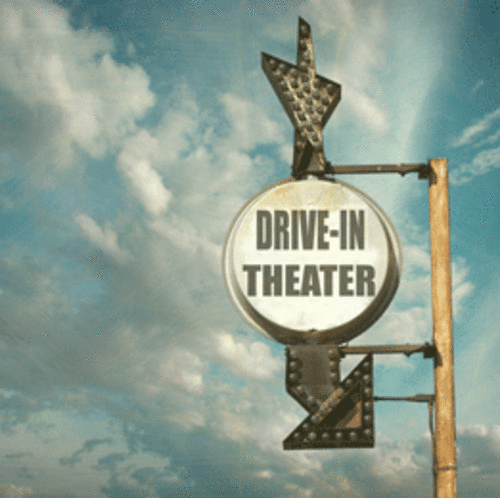The `Park-In` Movie Theatre
 Did you know that "drive in movies" got their start right here in our area? As the story goes, Richard Hollingshead's mother was a large woman--so large, that she couldn't fit comfortably into the seats used in the single-screen, downtown movie theaters so popular in the 1930s. History tells it that she mentioned to her son that it would be wonderful if she could watch a movie from the plush comfort of her automobile. Richard acted on his mother's comment and launched the drive-in movie industry.
Did you know that "drive in movies" got their start right here in our area? As the story goes, Richard Hollingshead's mother was a large woman--so large, that she couldn't fit comfortably into the seats used in the single-screen, downtown movie theaters so popular in the 1930s. History tells it that she mentioned to her son that it would be wonderful if she could watch a movie from the plush comfort of her automobile. Richard acted on his mother's comment and launched the drive-in movie industry. In June 1933, Hollingshead used a 16-millimeter film projector, the white wall of his automotive parts machine shop, and its parking lot on what is now Admiral Wilson Boulevard (formerly Bridge Boulevard), near the border of Camden and Pennsauken, to effectively create the world's first drive-in movie theater.
Hollingshead formed Park-In Theatres Inc. to show family-oriented movies on the back wall of the machine shop, charging one dollar per family or 75 cents for two people. The term "drive-in" came later when the industry reached its popularity peak in the 1950s, with nearly 4,000 theaters across the country. At its birth, Hollingshead's creation was known as the automobile movie theater.
Traditional movie theater operators immediately recognized the threat of drive-in movies and made it difficult for drive-ins to get first-run features in a timely manner. The movies shown were often edited for length and the earliest sound systems were merely outside loudspeakers shared by all patrons. Ultimately, the loudspeakers were replaced by single speakers for each car; today's remaining drive-ins (only about 800 survive) can pipe stereo sound to their guests through an automobile's FM radio channels. Hollingshead's first automobile movie theater was more than just a solution to a personal seating problem. This entrepreneur actually obtained a patent on the ramp parking system that allowed unobstructed views for all cars. When that patent was overturned in 1949, drive-in movie theaters hit their stride and reached the height of their popularity in the late 1950s, often using leased land in wide-open rural areas. But as residents migrated from cities to suburbs, that same land often became prime residential or retail building property and thus increased in value to the point that it was economically illogical for use as a drive-in theater.
3/26/15
© SouthJersey.com 2015. All rights reserved. This article or parts thereof may not be reprinted or reproduced by any other party without the express written consent of SouthJersey.com. For more information, please call 856-797-9910.
For more South Jersey History, visit our History page.
advertisement

Author: R. Cohen
Archives
A TALE OF THREE WEDDINGS
Timber Creek’s Leary heads to Illinois
The Berlin Cemetery
A Southern Mansion
Fire on the Morro Castle
Pine Barrens Fire of 1936
The Legacy of Hezekiah Bradley Smith
The Powhatan Renape Indians
Glassboro: A History
New Jersey Natives: The Lenni-Lenape
Burlington County Prison Museum
Parvin State Park
Haines Mill
John Henry `Pop` Lloyd
Jersey Devil: Fact or Fiction?
More...







